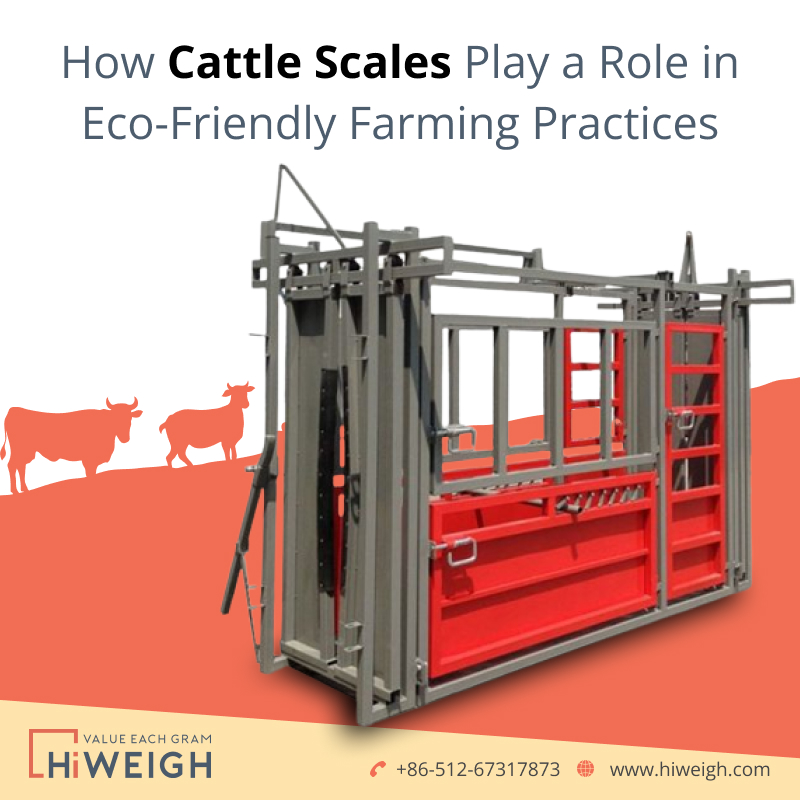Even though they are effective, traditional farming practices are frequently linked to inefficiencies that worsen the environment. Inaccurate weighing devices and ineffective management techniques in the cattle farming industry can lead to overfeeding, resource overuse, and needless environmental stress. This is where using contemporary cattle scales to promote environmentally friendly farming becomes crucial. Globally, farmers are adopting environmentally sustainable practices in order to maintain a balance between environmental conservation and productivity. Within this framework, a frequently disregarded but vital component is the function of a cattle scale in advancing ecologically conscious and sustainable agricultural methods.



Precision Weighing for Optimal Resource Utilisation
Cattle scales provide accurate measurements of livestock weights, which helps to promote environmentally friendly farming. Farmers can optimise feed portions, avoid overfeeding, and minimise food waste by using precise weight data on cattle. This accuracy minimises the environmental impact associated with feed resource overuse by ensuring that the livestock’s nutritional needs are satisfied without needless excess.
Data-Driven Decision Making
The incorporation of digital technologies into contemporary cattle scales is one of their main benefits. Farmers can use the real-time data generated by these scales to make well-informed decisions. Through a comprehensive grasp of the weight patterns of individual animals or the herd as a whole, farmers can carry out focused interventions, like modifying feeding schedules or promptly finding health problems. This proactive approach reduces the need for reactive, resource-intensive measures while simultaneously improving the health of the herd as a whole.
Efficient Resource Management
Effective resource management is often the key to using eco-friendly farming techniques. This is made possible by the insights that cattle scales offer into the overall productivity of the farming enterprise. Farmers, for example, can evaluate the feed-to-weight gain ratio of their cattle, which enables them to adjust feeding schedules for maximum growth with the least amount of resource input. This degree of accuracy guarantees the prudent use of resources like feed, water, and energy, supporting a farming model that is both ecologically friendly and sustainable.
Reduced Environmental Footprint
Like any other agricultural practice, raising cattle has an impact on the environment. Farmers can actively try to lessen this impact by using cattle scales. Reduced water use, fewer greenhouse gas emissions, and a smaller overall ecological footprint are all results of effective resource management. Essentially, using cattle scales is in line with the larger objective of sustainable agriculture which aims to maximise productivity without endangering the environment.
Monitoring and Mitigating Environmental Risks
Cattle scales are essential for monitoring and reducing environmental risks related to livestock farming, even beyond resource management. Farmers can detect possible problems, like illnesses or parasites, early on and prevent them from getting worse by keeping a close eye on each animal’s weight and health. This preventive measure not only lessens the need for frequent drug use but also avoids the possibility of dangerous materials contaminating water and soil sources.
Integration with Precision Agriculture
When precision agriculture is used in cattle farming, resources are used with extreme precision, which lessens the environmental impact of traditional farming methods. Cattle scales are a perfect fit for precision agriculture, a cutting-edge farming method that uses technology to maximise yield and reduce waste. A comprehensive and environmentally sustainable farming system is produced by combining digital technologies, data analytics, and precision weighing.
Final Thoughts
To sum up, incorporating a cattle scale into agricultural methods is a big step in the direction of sustainable and environmentally friendly farming. These scales not only support effective resource management but also facilitate data-driven decision-making, which lessens the impact on the environment and advances the welfare of the earth’s livestock population as well. Farming will become a more environmentally conscious and sustainable endeavour in the future as long as farmers continue to adopt modern technologies, such as cattle scales. The agricultural industry’s adoption of these technologies signifies not only a commitment to technological advancement but also a balance between profitability, productivity, and ecological harmony.
